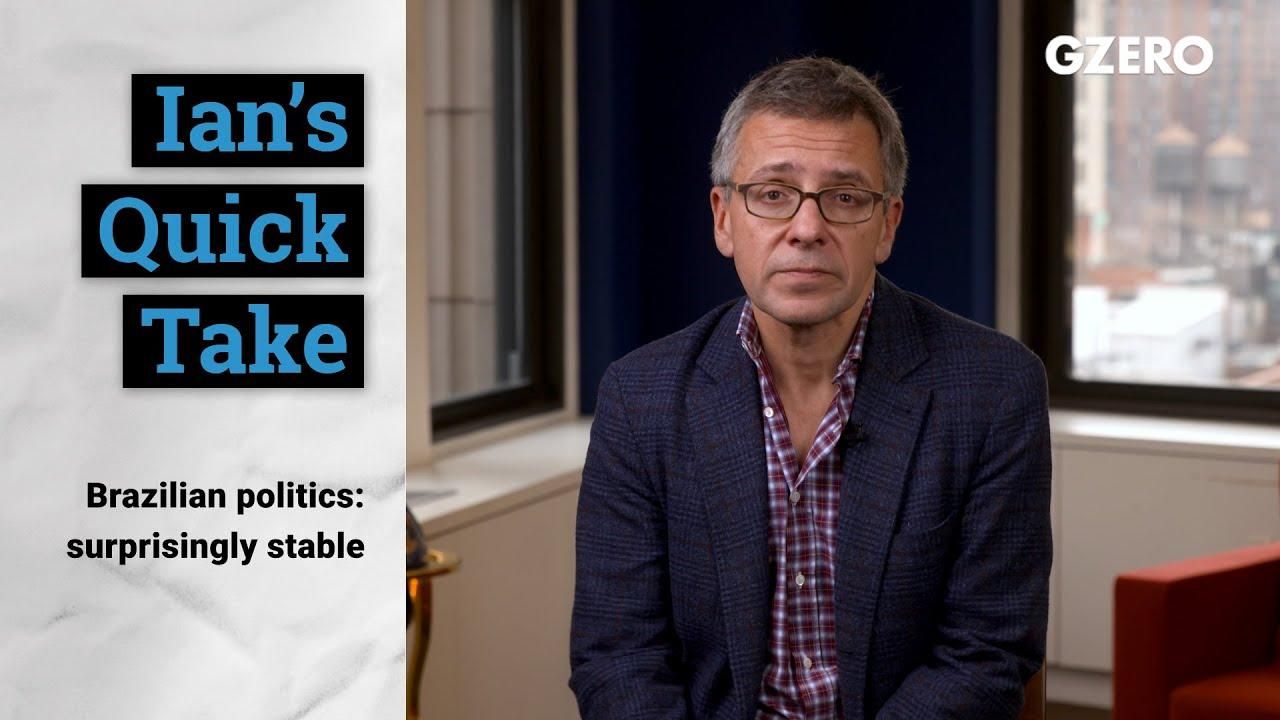
Ian Bremmer's Quick Take: Hi everybody. Ian Bremmer here. A Quick Take to kick off your week. There's so much that we could talk about, but we just had elections in Brazil, and as expected, Lula will be the next president of the largest economy in South America. We haven't yet heard anything from Jair Bolsonaro. That, of course, is an open question, just how much he wants to be an election denier, how much disruption he wants to bring about. But there's no question that we are going to see that transition.
Now, not a big surprise here. Lula's been polling ahead consistently over the course of the past months, though it was a tighter race, ultimately only a 1.9% split between the two candidates, a couple million votes, which had been tightening over the course of the last few weeks. In part, that's because Bolsonaro did a better job towards the end of electioneering. In part, the economy was getting a little bit better in Brazil. But also, keep in mind, generally speaking, polls underestimate the support you'll get for anti-establishment populace. And one big reason for that is because if you really don't believe in institutions, you are not likely to tell pollsters who you're going to vote for. You know why? Because you don't trust them. Now, the good news is a lot of people that really believe in conspiracy theories don't even bother to vote. But nonetheless, if they are going to vote, they're probably not going to talk to pollsters about it. So you do get a bit of that shy, radical populous turnout that did happen this time around, but not enough to make a difference.
So first of all, what do we think Bolsonaro is going to do? I mean, it would be good for the country, it'd be good for his legacy if he could just accept the fact that this was a free and fair election. Everyone around the world understands that. And as a consequence, conceding gracefully. He can run again in the future. He can certainly set himself up to be the leader of the Brazilian opposition. A lot of his allies have done comparatively well in elections, both in the Brazil's Congress, as well as in key governorships. He could be well set up for that.
His personality does not imply that's what he's going to do, much more about him than it is about his party, or it is about the country. And as a consequence, and maybe this is a problem with a lot of people that go into national elections in this environment, but it clearly appears that Bolsonaro is likely to say that this was fake news. That's a big lie. That the election really was his and not prepared to accept the outcome. Of course, if he does that, there is going to be a lot of internal dissent in the country. We'll certainly see big demonstrations, truckers for example, bikers for example, that can cause economic damage and disruption, dislocation, that could cause violence in capital cities across Brazil. But it won't change the outcome, and there's no ability for Bolsonaro to stop what will be a peaceful and on-time transition in the country. The military generally supports him but would not support a coup against democracy. The judiciary is not independent. It's actually increasingly politicized, but it doesn't support Bolsonaro. So that's not going to help him. And a lot of his allies, including in Congress, have already made clear that Bolsonaro actually lost what was a free and fair election.
So could there be a January 6th type moment in Brazil? I hope not. It's possible. But ultimately, like in the United States, it doesn't change the trajectory of this election. What it does do is continually undermine and erode the institutional legitimacy itself. That, of course, is a longer-term danger, not just in Brazil and the United States, but in many democracies around the world.
Finally, what about Lula himself? Certainly, you're now going to have a country that is more oriented towards assertive response on climate change. He's already talked about bringing deforestation down to zero in Brazil, which is going to be hard to do, but he'll be more welcomed on the international stage as a consequence of that. Economically, this is going to be a strongly left-leaning president, though the fact that he has talked a lot more about trying to tack to the center in past months, in part, to position himself to win. But in part because he understands that Congress is going to be much more divided with a lot of conservatives that aren't going to support a strongly populist economic position. That he's going to have a hard time dramatically changing the economic trajectory to the country, or significantly spending a lot of money on the fiscal side without figuring out how to pay for it.
So I suspect that this is... Even though the markets have taken a hit on the basis of Lula's win, ultimately this is going to be more stability in transition than a lot of people think. So I've never been super concerned about this election. I continue not to be super concerned about it. There's more stability in Brazil than a lot of people want to believe, and we'll watch where it goes. That's it for me, and I'll talk to you all real soon.